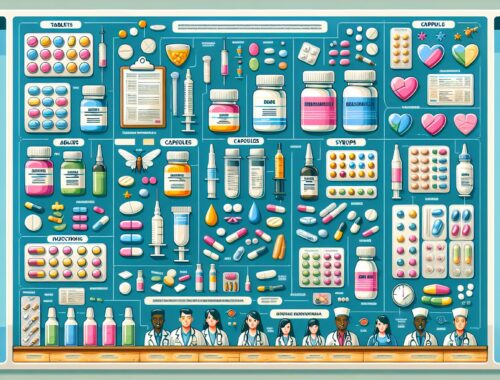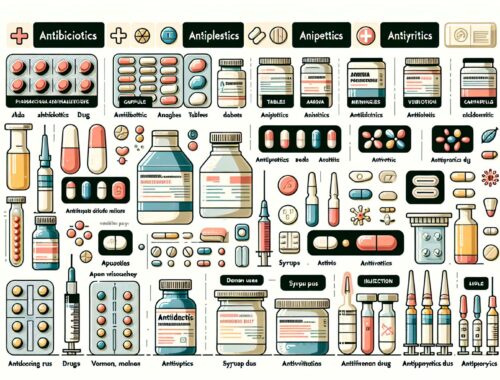
The Different Types of Medicines and Their Roles in Healthcare
Medicines play a crucial role in maintaining and restoring our health. They are designed to treat various symptoms, cure diseases, or manage chronic conditions. With the advances in medical research, there are now numerous types of medicines available. In this article, we will explore the different categories of medicines and their specific roles in promoting well-being.
1. Over-the-counter (OTC) medicines
Often available without a prescription, over-the-counter medicines are meant for self-diagnosed conditions and mild ailments. These include pain relievers like acetaminophen and ibuprofen, cough suppressants, antihistamines for allergies, and topical creams for minor skin irritations. While generally safe, it is essential to follow the recommended dosages and consult a healthcare professional if symptoms persist or worsen.
2. Prescription medicines
Prescription medicines, also known as prescription drugs, require a licensed healthcare professional’s authorization. Tailored to an individual’s specific condition, these medications range from antibiotics to manage bacterial infections to specialized drugs for chronic ailments such as diabetes or hypertension. It is crucial to carefully follow the prescribed dosage and directions to ensure their effectiveness and minimize potential side effects.
3. Vaccines
Vaccines are a preventive measure used to stimulate the immune system, preparing it to fight against specific infectious diseases. By introducing harmless components or weakened strains of the pathogen, vaccines enable the body to recognize and develop immunity against the actual disease. Vaccinations have played a critical role in eradicating diseases like smallpox and significantly reducing the impact of others, such as measles and polio.
4. Antidepressants and psychiatric medications
Antidepressants and psychiatric medications are prescribed to individuals experiencing mental health conditions such as depression, anxiety disorders, bipolar disorder, or schizophrenia. These medications work by altering the brain’s chemical balance to relieve symptoms and improve overall mental well-being. It is important to note that finding the right medication and dosage often requires close collaboration between patients and mental health professionals.
5. Antacids and gastrointestinal medicines
Antacids and gastrointestinal medicines are used to treat common digestive disorders such as acid reflux, indigestion, or ulcers. Antacids neutralize excess stomach acid, providing quick relief, while other medications help reduce acid production or protect the stomach lining. While these medicines can alleviate symptoms, it is essential to identify and address the underlying causes of digestive issues to ensure long-term digestive health.
6. Analgesics
Analgesics, commonly known as painkillers, are used to manage pain ranging from mild headaches to severe chronic pain. They can be classified into non-opioid analgesics, such as nonsteroidal anti-inflammatory drugs (NSAIDs), and opioid analgesics, which are prescribed for more intense pain. However, due to their potential for dependence and misuse, opioids are strictly regulated and monitored.
Conclusion
Medicines are powerful tools in the healthcare system, helping us overcome illnesses, manage conditions, and alleviate discomfort. Whether obtained over-the-counter or through a prescription, each type of medicine serves a specific purpose in promoting a healthier life. It is essential to use medicines responsibly, following medical advice, and understanding potential risks and benefits. Never hesitate to consult healthcare professionals for guidance on the most suitable medicines for your specific needs. Remember, accurate diagnosis and appropriate treatment are the keys to optimal health.
You May Also Like

Different Types of Medicines
January 15, 2024
Understanding Different Types of Medicines
February 16, 2024

